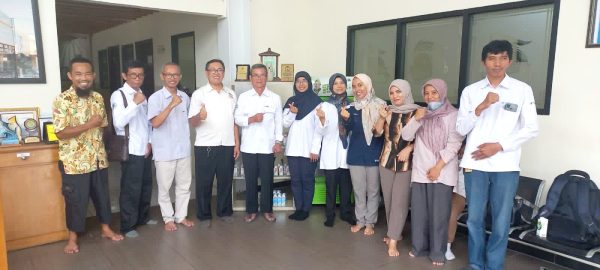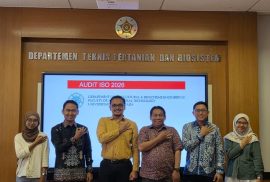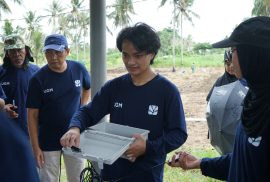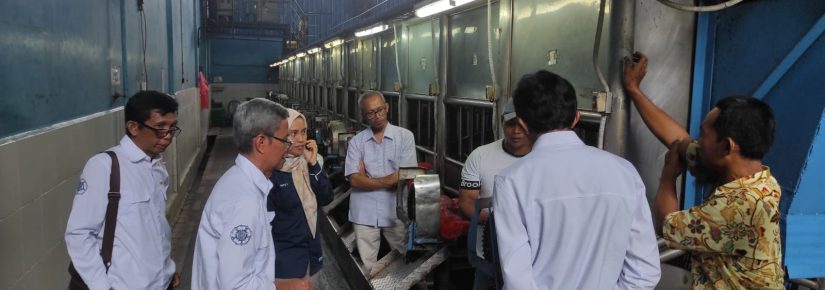
The team from the Energy and Machinery Laboratory, Department of Agricultural and Biosystems Engineering, conducted an Industry Visit to PT. Pacific Eastern Coconut Utama, Pangandaran on March 9, 2024. The team consisted of 3 professors (Prof. Bambang Purwantana, Dr. Radi, and Sri Markumningsih, Ph.D.), 2 technicians (Marheriyanto and Suryatmi), and 1 Ph.D. student (Hety Handayani Hidayat). They were welcomed by the GM of PT.PECU along with managers from the production, Quality Assurance, and public relations departments. The visit began with a presentation on the Company profile of PT PECU delivered by Mr. Mashuri, the GM of PT. PECU. PT. Pacific Eastern Coconut Utama is the largest coconut processing industry on Java Island, located in Pangandaran, West Java. Its main products include coconut milk, coconut flour, coconut water drinks, and desiccated coconut. The raw materials are sourced from Java, Sumatra, and Sulawesi, while the products are marketed domestically and exported overseas. The presentation also covered the coconut processing process along with the equipment and machinery used.
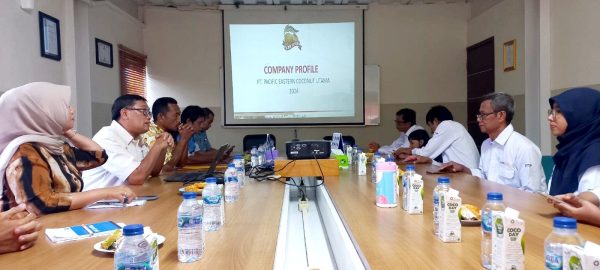
Prof. Bambang Purwantana, as the leader of the delegation from DTPB, expressed that the main objective of this visit is to directly observe the coconut processing process, particularly in the coconut peeling stage, as this topic will be the research focus for the dissertation of one of the Ph.D. students (Hety). Additionally, coconut processing is a field of study within DTPB, and it is hoped that future collaborations can be established for research, internships, student practical work, or other MBKM activities.
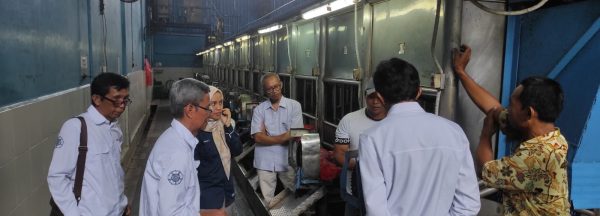
After the discussion session, the visit continued to the factory to observe the coconut processing process firsthand. More specifically, this field visit focused on activities related to the planned research, which involves the drilling of coconut shells to extract coconut water, followed by the peeling of the coconut shells and husks. The machine used for coconut shell peeling (sheller) still poses a significant risk of work accidents for operators and produces a considerable amount of broken coconut shells. The abundance of broken coconut shells currently hinders the subsequent process. Recognizing these challenges, PT. PECU welcomed the research plan proposed by Hety and her supervising team (Prof. Bambang Purwantana, Dr. Radi, and Prof. Mirwan Ushada). It is hoped that the innovation development for the coconut shell peeling machine will improve worker safety while enhancing the overall efficiency of the production process.
